Santos’ $4.7b NT Barossa Gas Project loses Federal Court battle
Gas giant Santos has singled out ‘project approval uncertainty’ as a ‘public policy issue’ in the wake of the Federal Court’s decision over its Barossa offshore project. Read the full statement.
Indigenous Affairs
Don't miss out on the headlines from Indigenous Affairs. Followed categories will be added to My News.
One of the nation’s largest offshore gas projects has had its drilling environment plan revoked after it and the regulator failed to consult with Traditional Owners.
The $4.7bn Santos Barossa Project has lost its approval from the gas regulator, the National Offshore Petroleum Safety and Environmental Management Authority, after the Federal Court found the approval was legally invalid.
Justice Mordecai Bromberg found that NOPSEMA failed to ensure Santos consulted with Traditional Owners over the project 138 km north of the Tiwi Islands.
Munupi Senior Lawman Dennis Tipakalippa sued the federal gas regulator over a lack of consultation over the offshore Barossa Gas fields project.
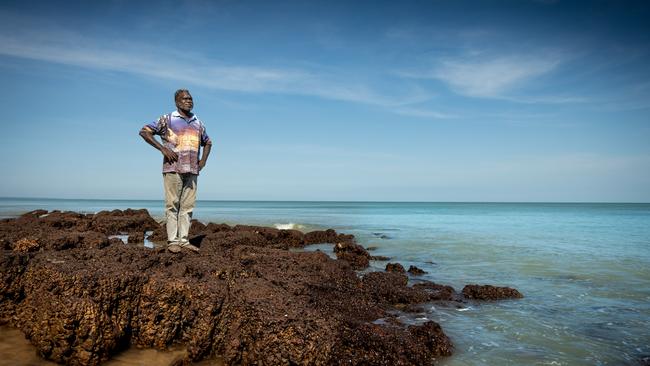
The offshore gas field was located 138km from the islands, yet Elders said the consultation was limited to a few unanswered emails and missed phone calls.
Justice Bromberg made his ruling on Wednesday, following a historic Federal Court hearing in the Top End.
Justice Bromberg said the legal principles were “complex”, with the burden on Tiwi Elders to establish not only that the decision to approve the licence was wrong, but also that NOPSEMA “failed to proceed reasonably”.
Santos responds to ruling - below
“Mr Tipakalippa has established that NOPSEMA was not lawfully satisfied that the drilling EP met the criteria required by the regulation,” Justice Bromberg said.
“NOPSEMA failed … to assess whether the drilling EP demonstrated that Santos consulted with each person it was required by the regulations to consult with.”
“The he acceptance or permission given by NOPSEMA was legally invalid.
“NOPSEMA’s decision to accept the Drilling EP must therefore be set aside.”
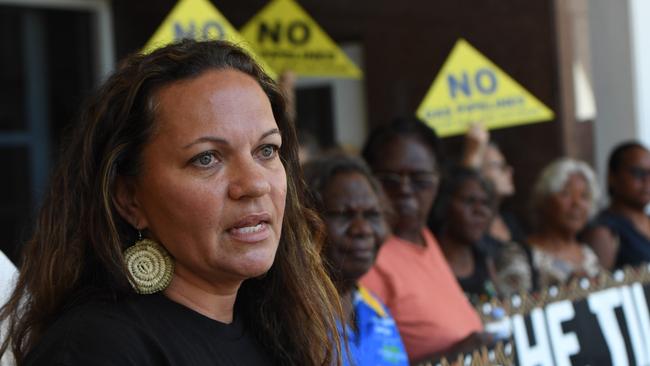
Justice Bromberg said Santos will be given two weeks, until October 6, to safely shut down the drilling operation and remove the rig.
Tiwi Islands Elders said the offshore gas field could threaten their millennia-long spiritual and environmental connections to the Deep Sea Country.
Following a historic Federal Court resources challenge, which took legal representatives across the Beagle Gulf to Pitjamirra, Melville Island.
This was the first time on-Country evidence was heard in a judicial review challenge to approvals for an offshore fossil fuel project.
As the Federal Court sat under a tent by the sea, Tiwi Islands mayor and senior Munupi Traditional Owner Pirrawayingi Puruntatameri told the court if something went wrong, the physical and spiritual damage could last forever.
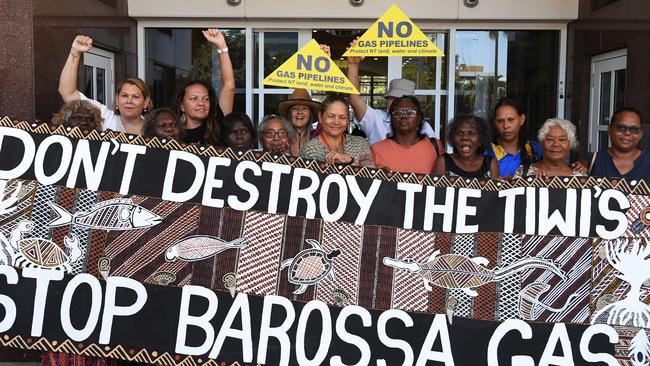
“We are the holders of everything under and in the sea. It is part of us, who we are as traditional Aboriginal people,” Mr Puruntatameri said.
“(Santos) are not thinking about the significance of the sea to our people.”
When the week-long hearing returned to Darwin a dozen Munupi Elders travelled from their island home to watch as barristers debated the future of their community.
Following the week long hearing, Santos agreed to slow its expansion of the gas project until Justice Mordecai Bromberg could hand down a decision.
Santos promised on August 27 that it would continue its preliminary drilling as long as it did not penetrate the gas reservoir, and no new wells could be drilled until the decision.
Throughout the hearing Santos maintained appropriate stakeholder engagement had taken place since 2016.
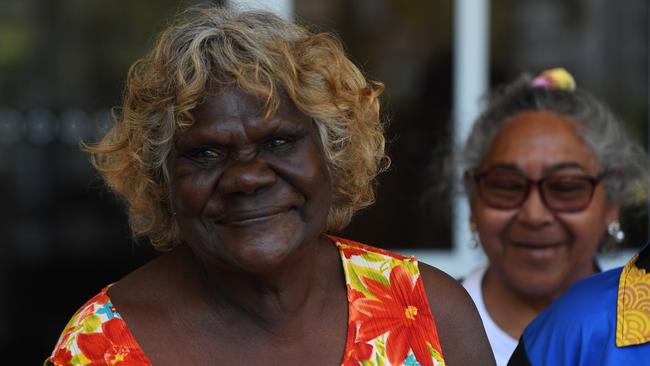
The company’s lawyers said the project was “subject to robust approvals” to meet its obligations under the regulator NOPSEMA.
Senior stakeholder adviser Mike Marren said Santos had committed to “encourage (ing) open two-way engagement with stakeholders”.
Mr Marren said he had personally sent emails to hundreds of stakeholders, including the Tiwi Land Council but had not contacted the chief executive officer directly.
The court heard attempt at in-person meetings had been limited because of Covid.
The court also heard from Marine Ranger Program and Maluwu man James De Santis who said he was “shocked” by the plans and the potential threat to hunting grounds and marine wildlife.
“Spills are my main concern but the drilling and disturbing the sea floors, or chemicals coming out from drillings and coming into the ocean,” Mr De Santis said.
“That’s no good for the sea life.
“It’s a big cycle — one eating one eating one — And everything ends up dead.”
Santos to appeal ‘disappointing’ Barossa decision
Australian energy giant Santos will appeal the Federal Court’s decision to overturn drilling associated with the Barossa gas project in the Timor Sea.
In a statement to the Australian Stock Exchange on Wednesday afternoon, Santos called for the judgment to be heard on appeal by the full Federal Court.
Santos announced it would suspend drilling “pending a favourable outcome or the approval of an updated environmental plan.”
“Santos will be seeking to expedite these processes,” it said.
The company also thanked its key joint venture partners and called for the Commonwealth to urgently address issues around investor sovereign risk.
“Santos appreciates the strong support from our Japanese and Korean joint venture partners,
who have, in good faith, and on the back of Australia’s historical reputation as a safe and
stable investment destination, invested in this project,” the statement said.
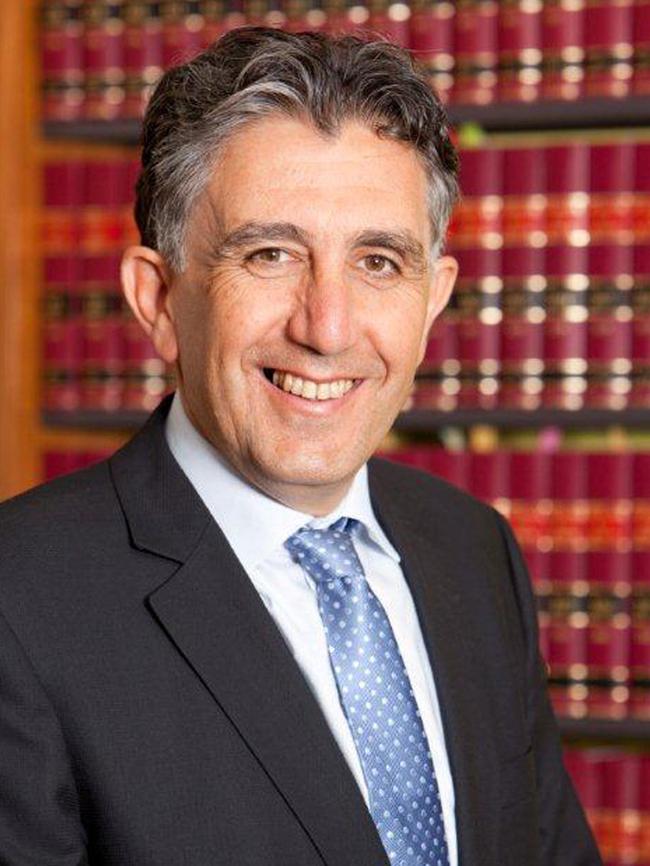
“Project approval uncertainty is a public policy issue that should be urgently addressed by
Australian governments to reduce risk for trade and investment in projects around the
country.”
Federal Court Justice Mordecai Bromberg found that gas industry regulator NOPSEMA failed to ensure Santos consulted with Traditional Owners over the project about 140km north of the Tiwi Islands.
Santos described the Federal Court’s ruling as “a disappointing outcome”.
“Consistent with previous practice, Santos engaged about the proposed drilling activities with the Tiwi Land Council, a representative body with statutory authority under the Aboriginal Land Rights (Northern Territory) Act 1976,” the statement said.
“Similarly, Santos had engaged about the proposed drilling activities with the Northern Land Council, the Native Title representative body for the Tiwi Islands. NOPSEMA had accepted our efforts to consult with Tiwi Islanders in accordance with the Regulations when it decided to accept the Environment Plan for those activities.
“Given the significance of this decision to us, our international joint venture partners and
customers and the industry more broadly, we consider that it should be reviewed by the Full
Federal Court on appeal.
“Santos is committed to continuous improvement in our consultation processes.
“Our relationships with the Traditional Owners, local communities and landholders where we
operate are very important to us.
“Barossa is an important gas project for the nation, enhancing jobs, exports and our
relationships with investors and gas customers in Asia who have depended on Australia for
their energy security for decades.
“The Barossa Gas Project is approximately 46 per cent complete. The drilling activities are
not on the critical path for the project and we have headroom in the project cost contingency.
‘We are powerful’: Indigenous Elders and greenies assess ramifications of decision
Munupi Elder Mr Tipakalippa said the Santos decision showed the power and determination of Traditional Owners to fight for their Country.
“I am the happiest man alive,” he said.
“We want Santos and all mining companies to remember – we are powerful.
“We will fight for our land and Sea Country, for our future generations no matter how hard and how long.
“We will fight from the beginning to the end.
“Santos tried to get away with not consulting us, but today we have had our voices heard.
“We cannot be sidelined or silenced.”
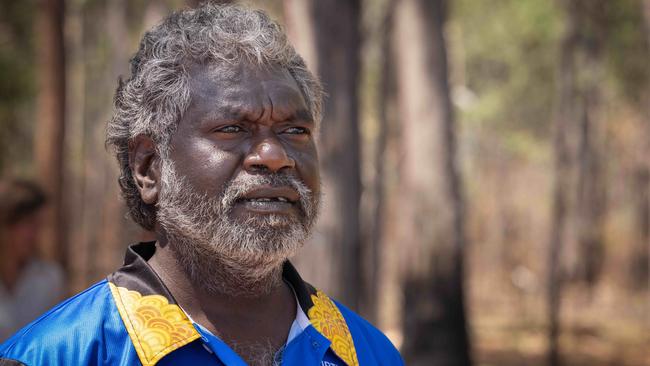
The Munupi legal representative, Environmental Defenders Office special counsel Alina Leikin, said it was a historic and groundbreaking decision and signalled a “reckoning for the gas and oil industry”.
“The only steps that Santos took in relation to the drilling approval was to send unanswered emails and make unanswered phone calls to the Tiwi Island people – and that is not meaningful consultation,” Ms Leikin said.
“Santos will now have to go back to the drawing board and start the process of consulting with Tiwi people from scratch.
“Consultation with First Nations communities cannot be treated as a tick-a-box exercise.
“Santos has learned this lesson the hard way.”
“This decision will have ripple effects nationally and globally.”
Ms Leikin said she was honoured to have worked with the Munupi people in their fight for Country.

“This was not something they did lightly. It took a huge amount of courage and energy and dedication. But their ultimate priority is to protect their precious Sea Country,” she said.
“And today they have been vindicated. It’s been the greatest privilege to represent Dennis and the Munupi community and to stand alongside them in this fight.”
Ms Leikin said there was still a lot of work to be done, particularly with Santos announcing it would appeal the Federal Court decision.
Ms Leikin said it was up to the Tiwi people if they would like to see the gas project renewed after proper stakeholder consultation.
“The only way that Santos will be able to do drilling at the site is with an approved plan, and a valid approved plan. And it’s unclear how long that process might take,” she said.
The decision recognised that the Munupi people were relevant stakeholders to the Sea Country project 138km from the Tiwi Islands, a far greater territory that the 5km Native Title claim.
Environment Centre NT Energy Campaigner Jason Fowler said with the Barossa now in “disarray” it was time to look at the legal ramifications for all offshore oil and gas projects.
“Gas companies: take notice. What Santos has tried to pass off as consultation has been found to be insufficient, and now the wheels are off their project,” Mr Fowler said.
Nurrdalinji Aboriginal Corporation, from the Beetaloo and Barkly regions in Central Australia, said the decision was a “warning bell for all fracking companies”.
Chair and Jungai cultural lawman Johnny Wilson said Nurrdalinji Native Title Aboriginal Corporation lawyers would be closely examining the judgement and compare it to past and ongoing fracking consultation in the Beetaloo Basin.
“The Tiwi people’s story is our story too,” Mr Wilson said.
“We have not been properly consulted by fracking companies, or the Northern Land Council, and when they do consult they often don’t consult widely.
“There is no support for us to meet as a group to consider the region-wide impacts of fracking on our water and sacred sites.
“The water which runs through our country connects us all as one and affects us all as one”.
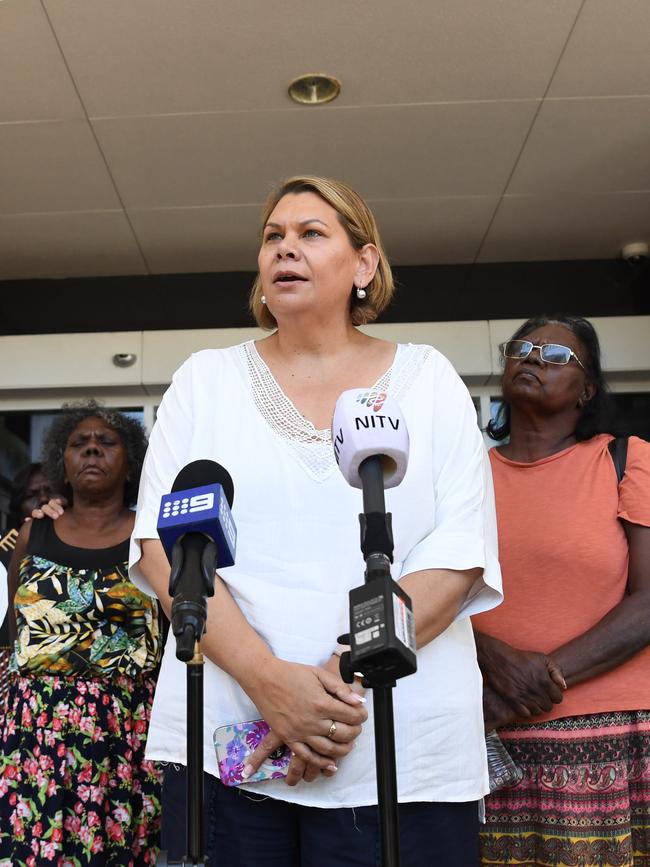
Greens resources spokeswoman, Yamatji-Noongar Senator Dorinda Cox said the Federal Court had found NOPSEMA “clearly failed the Munupi people”.
“NOPSEMA has not only ignored its responsibility to First Nations peoples, but all Australians. There needs to be a full investigation into previous decisions it has made around adequate consultation with Traditional Owners,” Ms Cox said.
“If Labor wants to talk about recognising First Nations people, they must start with their own departments.
“If Labor wants to meet their own emissions target, we cannot keep opening up new coal and gas, especially on the back of ruining First Nations cultural heritage.”
Ms Cox advocated for Australia to implement the United Nations Declaration on the Rights of Indigenous People to further legislate protections.




